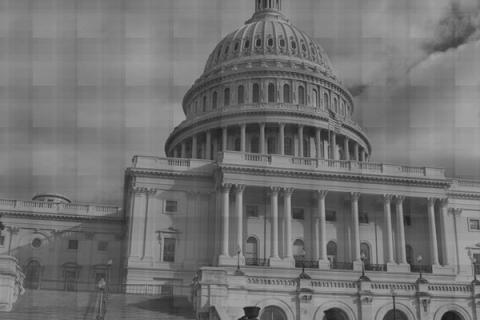 Andrey Bayda / Shutterstock.com
Andrey Bayda / Shutterstock.com
The bid for the democratic ticket in the New York City mayoral race has become more detailed as candidates campaign and public opinion is expressed. A recent poll conducted by Quinnipiac University found infamous former-congressman Anthony Weiner leading the pack of Democratic hopefuls in the race, but highlights the partisanship nature of the primary system.
Weiner made headlines in late June when he announced his plan for a single-payer health care system that would be more comprehensive than Obamacare, cutting out insurance agencies and universally covering New Yorkers. Almost immediately afterwards, he was found in the lead of a poll conducted by The Wall Street Journal, NBC News, and Marist College.
According to the research conducted by New York Times columnist, Nate Silver, the early leader in the Democratic polls almost always receives the nomination. The article was published before Weiner took the lead for the first time at the end of the month, after City Council Speaker Christine Quinn was in first place since the mayoral primary race began.
The most recent poll, released by Quinnipiac on July 15, found Weiner at 25 percent, giving him a 3 percent edge on Quinn. Former-comptroller Bill Thompson garnered 11 percent of the vote and Public Advocate Bill de Blasio received 10 percent.
New Yorkers certainly have not forgotten Weiner’s prior misconduct. However, the consensus seems to be that scandals external of government don’t detract from a political candidate’s viability; Quinnipiac found that on a margin of 3-1, those polled said corruption is a worse offense for a public official to commit than an act of sexual misconduct.
While Weiner works to get back into politics, former frontrunner Quinn, who hopes to be both the first female and first openly gay mayor of New York, has seen what was once a sizable advantage slip away over the past couple of months.
Quinn has been barraged by a $1.5 million media blitz, paid for by the “New York City is not For Sale” PAC, who believe that her record shows that she does not support the middle class and would appease special interest groups as mayor.
Whether or not that is the case, Quinn’s campaign promises appear to align with the average voter and include alleviating overcrowding in public schools, creating more manufacturing jobs, and aiding small businesses in the City. She is an adamant defender of gay rights and plans to advocate for them everywhere from New York to Washington.
Her plan to open New York’s first LBGT senior citizen center is a progressive centerpiece of her proposed legislation.
Thompson, who is a harsh critic of current-mayor Bloomberg’s education decisions, has quietly procured endorsements from a number of major NYC unions, including the United Teachers' Union and the Transport Workers' Union. Education is a central focus of his vision; he plans to expand the city’s charter school sector, bolstering current schools by increasing aid and eliminating rent fees.
De Blasio has emphasized affordable rent and is a staunch supporter of immigrant rights. He supports and hopes to enact components of the DREAM Act as mayor. De Blasio also plans to create a citywide ID card that would allow all New Yorkers -- non-citizens included -- access to basic services like opening a bank account or signing an apartment lease.
New York conducts closed primary elections where only those registered with the party can participate. Within New York City, 3.2 million of the 4.7 million registered voters -- 68 percent -- are identified as Democrats. About 510,000 identify as Republican, making a bid for mayor difficult.
About 1 million voters in New York City identify with a third-party or no party at all.
Unfortunately all polling thus far has run along partisan lines, so it is difficult to say where the Democratic candidates stand with third party and independent voters. Quinn, de Blasio, and Thompson all have a shot at receiving third party endorsements if they do not secure the Democratic ticket, which could change the outlook for the New York City mayoral election.
